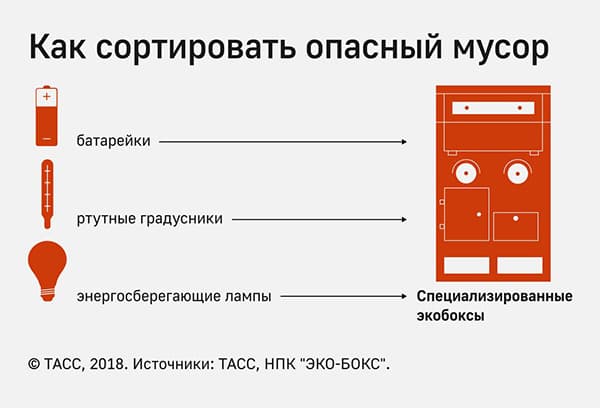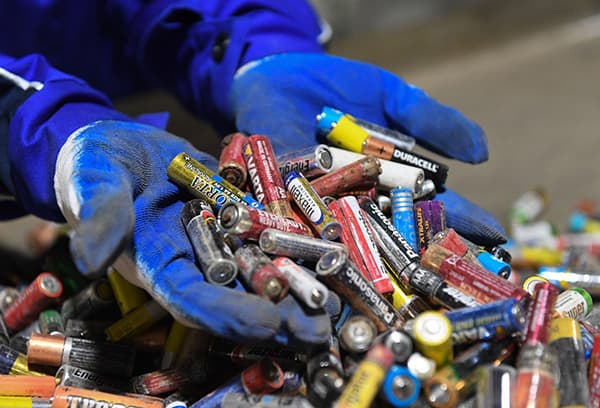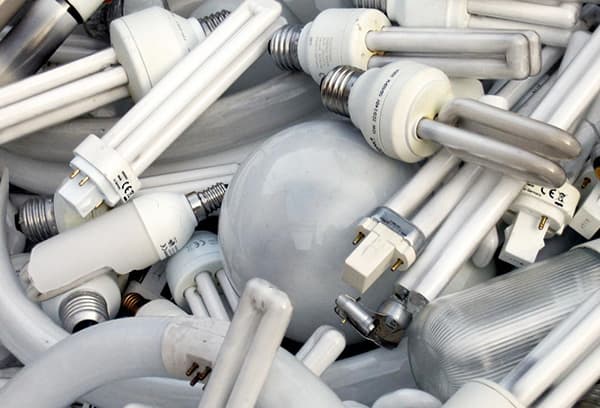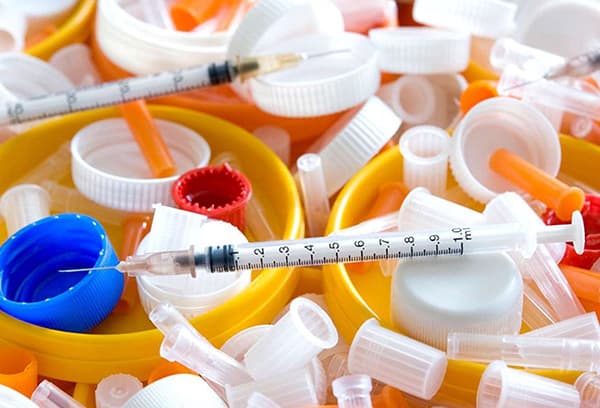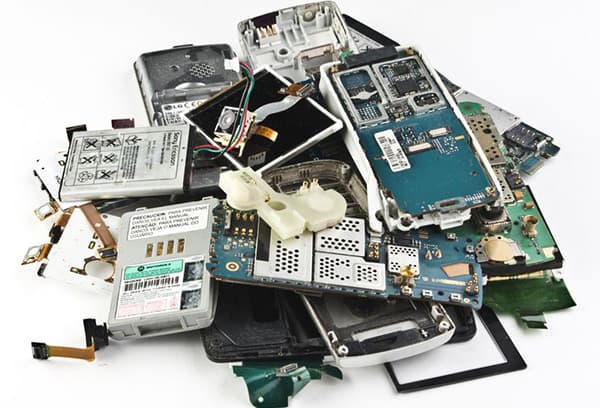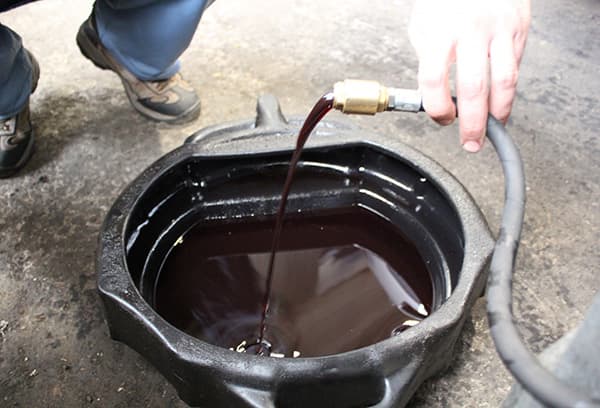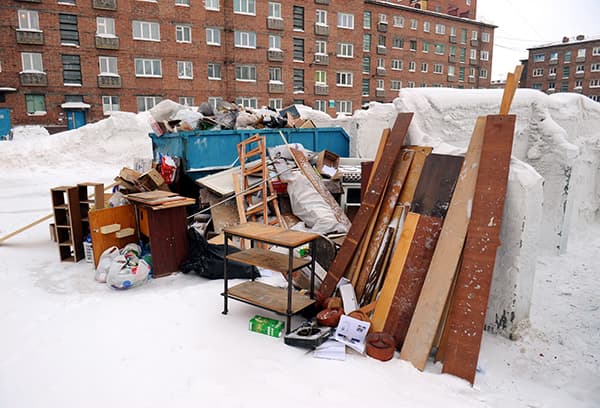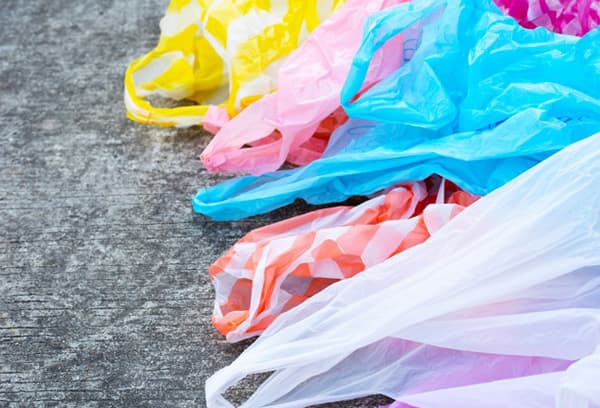Hazardous waste: what should not be thrown into the trash can?
Content:
Garbage collected by one family in a few days is thrown into a regular container for municipal solid waste (MSW). Do not throw in garbage bins items that require disposal. Some products have special markings. The crossed out container for solid waste means that special processing is required - disposal.
Trash not intended for regular containers
The list of "special" types of waste is not too large, easy to remember. These are goods that are safe in domestic use. However, obsolete, they fall into the natural environment and can harm the environment. Such products must not be thrown into the trash bins.
Batteries & Batteries
Even used devices contain harmful substances, such as alkali, heavy metals. After the destruction of the metal shell, chemicals penetrate the sediment into the soil, groundwater, and pose a threat to the environment and human health. The danger also lies in the ability of lithium batteries to self-explode.
In cities, there are collection points for rechargeable batteries. Batteries are “customers” for placement of hazardous household waste in landfills.
Mercury-containing lamps, thermometers
Such products are safe as long as the metal is insulated in a glass case. After integrity violation, mercury pollutes the atmospheric air, soil, water. In Russia and other countries, legislation has introduced the collection of lamps and other mercury-containing devices separately from other types of solid waste.
Such products are taken from the population free of charge at collection points and sent for recycling, which is carried out by specialized enterprises. It is important to return the used lamps in a cardboard box.
Non-toxic lamps - incandescent, halogen - can be thrown into a garbage container. It is advisable to put them in a paper bag, a box so that no one gets cut. LED bulbs are used for recycling, but so far the service is not widespread.
Chemical substances
This group includes substances hazardous to the environment:
- residues of household chemicals, paints, varnishes, glue;
- unused cosmetics;
- medical waste;
- pesticides.
If you transfer the listed substances to landfills, then after washing, they will fall into underground and surface waters.
Waste household and computer equipment, broken batteries from mobile phones
Proper equipment, when used, does no harm. In case of violation of the body, toxic compounds get into the air, soil and water, harm human health and the environment.
The electronic components of the devices contain:
- lead;
- nickel;
- cadmium;
- beryllium;
- various non-metallic additives.
To get rid of hazardous waste, you need to find a recycling organization or use the equipment return program that many manufacturers offer.
A damaged or unusable telephone should not be thrown into a garbage container. You can take it to the gadget repair point, where a basket is installed to receive faulty phones.
Auto products
Used oils, antifreeze agents must be disposed of correctly after replacement. You can contact the nearest service station, where there are conditions for this work.It is forbidden to throw into containers not only technical fluids, but also car tires.
Construction and bulky waste
Construction, overhaul is not complete without garbage. When buying new furniture, we are faced with the problem of recycling old. It is necessary to organize the removal of such waste separately from household waste.
Polyethylene
In its original form, when we use plastic bags and bottles, this substance is non-toxic. It becomes hazardous if released into the environment due to a long decomposition period. It is impossible to burn polyethylene - a lot of toxic organic substances are formed.
Disposal is possible after grinding waste in special plants. However, many municipal solid waste programs are slipping on polyethylene. Environmentalists offer as a way out of a difficult situation the rejection of environmentally harmful plastic bags.
Unfortunately, the culture of consumption lags behind the growth rate of the welfare of the population. Not all residents of cities and villages know that it is impossible to throw lamps, the remnants of paintwork and other hazardous substances into the landfills, equipment and furniture that have fallen into disrepair. There are still few people who want to refuse plastic bags.
Environmental laws and regulations in the field of solid waste protect the natural environment and people from garbage. If they are violated, then an administrative penalty will be fined. You can avoid troubles and at the same time make a feasible contribution to environmental protection. To do this, it is necessary not to throw certain types of garbage into containers for household waste, but to hand it in for disposal.
